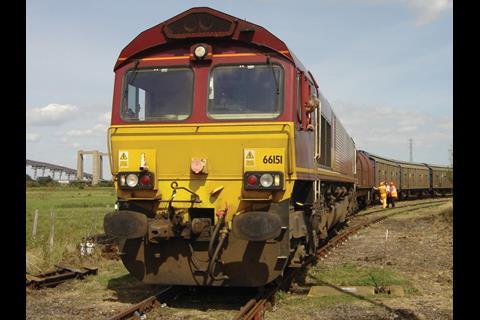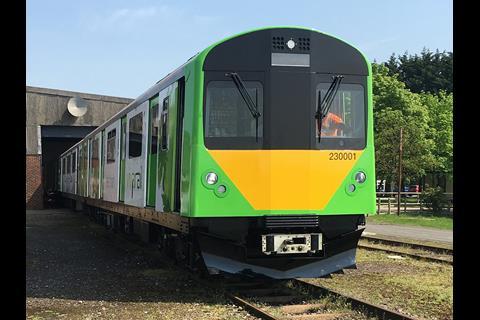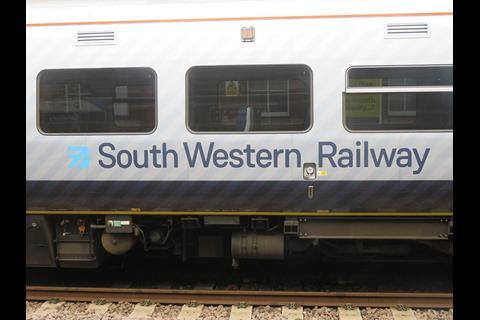UK: The Department for Transport has awarded grants of around £350 000 to each of five projects which aim to develop technology to reduce the rail network’s carbon footprint.
The projects were selected under the second round of the DfT’s First of a Kind competition, run by Innovate UK as part of the DfT’s wider Accelerating Innovation in Rail programme. They are:
Riding Sunbeams: Setting up solar power generation sites on railway land to feed electricity into the traction power network.
Diesel Freight Carbon Reduction Technology: Vortex Developments 2014 Ltd is to test an automotive exhaust design that reduces fuel consumption by supporting more efficient combustion and reduces particulates through improved exhaust gas scavenging. The trial will use a DB Cargo UK Class 66 locomotive, building on a previous project with a Class 156 DMU which demonstrated a 13% reduction in diesel use. Design will be supported by the University of Surrey, and testing by the SBL-Rail division of Westerton Agencies Ltd. Manufacturing will be carried out by Benson Components and commercialisation by Unipart Rail.
CODD-P hydraulic pump: Unipart Rail will undertake in-service testing of a commercial version of a digital displacement pump and electronic controller in place of a traditional hydraulic pump with swashplate design. This is expected to provide a significant reduction in fuel consumption.
Green Rail Exhaust After Treatment: Leasing company Porterbrook will collaborate with Eminox to transfer an on-road exhaust after-treatment system widely fitted to heavy-duty vehicles to the railway environment, equipping a South Western Railway Class 158 DMU for in-service trials. This will enable the technical and commercial viability to be established, so it can be offered for widespread fitment.
W2W Zero emissions power system: Steamology’s Water 2 Water concept will use compressed hydrogen and oxygen gas in a ‘compact energy-dense steam generator’ to produce high pressure superheated steam to drive a turbine, which will generate electricity to charge the batteries as a ‘range extender’ for a Vivarail Class 230 multiple-unit produced from former London Underground vehicles.
‘This funding will be vital in helping these fantastic projects adapt to the demands of rail and enable their potential roll-out, delivering a cleaner, healthier network for passengers’, said Rail Minister Andrew Jones when the grants were announced on January 31.
The next round of FOAK funding is now underway, with SMEs encouraged to submit ideas to tackle noise pollution and improve the environment, infrastructure and operational resilience.






